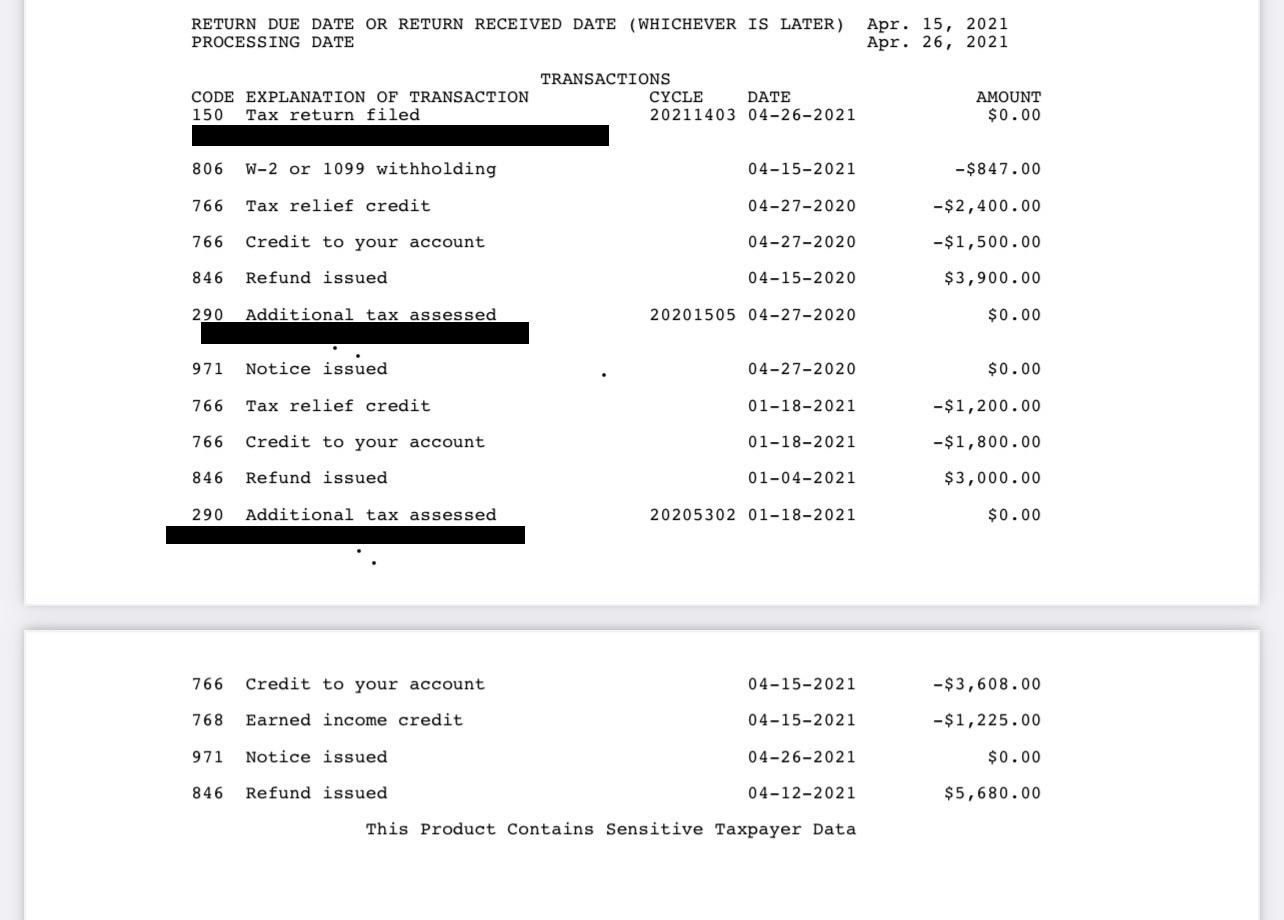Home>Finance>How Much Does Radiation Treatment Cost With Insurance?


Finance
How Much Does Radiation Treatment Cost With Insurance?
Published: November 18, 2023
Get to know the cost of radiation treatment with insurance. Plan your finances and explore options to cover medical expenses efficiently.
(Many of the links in this article redirect to a specific reviewed product. Your purchase of these products through affiliate links helps to generate commission for LiveWell, at no extra cost. Learn more)
Table of Contents
- Introduction
- Understanding Radiation Treatment
- Factors Affecting the Cost of Radiation Treatment
- Types of Insurance Coverage for Radiation Treatment
- Average Cost of Radiation Treatment with Insurance
- Out-of-Pocket Expenses for Radiation Treatment with Insurance
- Tips for Managing the Cost of Radiation Treatment with Insurance
- Conclusion
Introduction
Radiation treatment is a crucial and effective therapy for various cancers. It involves the use of high-energy radiation beams to target and destroy abnormal cells in the body. While the effectiveness of radiation treatment is unquestionable, the cost associated with it can be a major concern for many patients.
Understanding the cost of radiation treatment is important for patients and their families to plan their finances and make informed decisions. The cost can vary significantly depending on several factors, such as the type and stage of cancer, the duration and frequency of treatment sessions, and the location of the treatment facility.
In this article, we will explore the cost of radiation treatment with insurance coverage. We will delve into the factors that can impact the cost, the different types of insurance coverage available, and provide tips on managing the expenses associated with radiation treatment.
It is important to note that the information provided in this article is general in nature and may vary based on individual circumstances and insurance policies. It is essential for patients to consult their healthcare provider and insurance company for accurate and personalized cost estimates.
Understanding Radiation Treatment
Radiation treatment, also known as radiation therapy or radiotherapy, is a medical procedure that uses high-energy radiation beams to target and destroy cancer cells in the body. It is a localized treatment that primarily focuses on the area affected by cancer, while minimizing damage to surrounding healthy tissues.
The goal of radiation treatment is to shrink tumors, eliminate cancer cells, and alleviate symptoms to improve the patient’s quality of life. It can be administered as the primary treatment for certain types of cancers or in combination with other treatment modalities like surgery and chemotherapy.
During radiation treatment, a machine called a linear accelerator delivers the radiation beams to the targeted area. The treatment sessions are typically painless and last for a few minutes. The frequency and duration of the treatment sessions are determined by the type and stage of cancer, as well as the treatment plan developed by the radiation oncologist.
Radiation treatment is customized for each patient based on various factors, including the type of cancer, its location, and the patient’s overall health. The radiation oncologist carefully determines the appropriate dosage and treatment technique to maximize the effectiveness while minimizing side effects.
It is common for patients to undergo multiple sessions of radiation treatment over a period of several weeks. This allows for the cumulative effect of radiation to destroy cancer cells while giving healthy cells time to recover. Throughout the treatment process, patients are closely monitored by their healthcare team to ensure the safety and efficacy of the treatment.
While radiation treatment can be a vital part of cancer care, it is essential for patients to understand the potential side effects and risks associated with the therapy. Some common side effects include fatigue, skin irritation or dryness in the treatment area, hair loss (if the treatment site is the head), and changes in appetite. These side effects are typically temporary and can be managed with proper medical support.
Overall, radiation treatment plays a crucial role in the fight against cancer and has helped countless individuals in their journey towards recovery. Understanding the fundamentals of this treatment approach is an important step in navigating the cost and logistics associated with radiation therapy.
Factors Affecting the Cost of Radiation Treatment
The cost of radiation treatment can vary significantly based on several factors. Understanding these factors can help patients anticipate and plan for the expenses associated with their treatment. Here are some key factors that can influence the cost of radiation therapy:
- Type and Stage of Cancer: The type and stage of cancer play a crucial role in determining the treatment approach, including radiation therapy. Certain cancers may require more extensive and prolonged radiation treatment, which can result in higher costs.
- Treatment Technique: There are various techniques used to deliver radiation therapy, such as external beam radiation, brachytherapy, or proton therapy. Each technique has its own associated costs, based on factors such as equipment, staffing, and facility requirements.
- Number of Sessions: The number of radiation treatment sessions required can significantly impact the cost. Some patients may require daily sessions for several weeks, while others may need fewer sessions depending on the treatment plan developed by the healthcare team.
- Location of Treatment Facility: The geographical location of the treatment facility can also affect the cost. Treatment centers located in major metropolitan areas often have higher overhead costs and may charge more for services compared to centers in smaller towns or rural areas.
- Insurance Coverage: The coverage provided by insurance plays a vital role in determining the out-of-pocket expenses for radiation treatment. The type of insurance, deductibles, copays, and coverage limits can all impact the cost burden on the patient.
It is important to note that these factors interact with each other and can vary greatly from case to case. For example, the type and stage of cancer may influence the treatment technique and number of sessions required, which in turn affects the overall cost. Additionally, insurance coverage can significantly mitigate the financial burden for patients.
When discussing treatment options, it is advisable for patients to have an open and transparent conversation with their healthcare team to understand the costs associated with radiation treatment. This can help in making informed decisions about the treatment approach and exploring potential financial assistance or support programs.
While the cost of radiation treatment can be a concern for patients, it is essential to prioritize the quality and effectiveness of the treatment. Discussing financial considerations with healthcare providers and exploring available resources can help manage the financial aspect without compromising on the necessary care.
Types of Insurance Coverage for Radiation Treatment
Insurance coverage for radiation treatment can greatly impact the out-of-pocket expenses for patients. Here are some common types of insurance coverage that may help cover the cost of radiation therapy:
- Private Health Insurance: Many individuals have private health insurance plans through their employers or purchased independently. These plans typically provide coverage for radiation treatment, subject to deductibles, copayments, and coverage limits. It is important to review the policy documents and consult with the insurance provider to understand the specifics of the coverage.
- Medicare: Medicare is a federal health insurance program primarily for people aged 65 and older, as well as individuals with certain disabilities. Part A of Medicare generally covers radiation therapy received as an inpatient in a hospital or skilled nursing facility, while Part B covers outpatient radiation treatment. Medicare beneficiaries may still have out-of-pocket costs, such as deductibles and coinsurance.
- Medicaid: Medicaid provides health coverage to low-income individuals and families. Eligibility and coverage may vary by state, but Medicaid typically covers necessary medical treatments, including radiation therapy. Patients with Medicaid may have little to no out-of-pocket costs for radiation treatment.
- Employer-Sponsored Health Plans: Many employers offer health insurance coverage as part of their employee benefits package. These plans may cover radiation treatment, but the specifics of the coverage will depend on the plan. Employees should review their plan documents and speak with their HR department or insurance provider for detailed information.
- State-Sponsored Programs: Some states offer programs to help uninsured and underinsured individuals access affordable health coverage. These programs may include coverage for cancer treatments, including radiation therapy. Eligibility criteria and coverage details can vary, so it is important to explore the options available in your state.
- Health Savings Accounts (HSAs) and Flexible Spending Accounts (FSAs): HSAs and FSAs are accounts that allow individuals to set aside money on a pre-tax basis to pay for qualified medical expenses. Contributions to these accounts can be used to cover the cost of radiation treatment, reducing the patients’ out-of-pocket expenses.
It is important for patients to thoroughly understand the terms and conditions of their insurance coverage, including any network restrictions, prior authorization requirements, and coverage limitations. Patients should also be aware of any potential costs, such as deductibles, copayments, and coinsurance that may be associated with their insurance plan.
If patients do not have insurance coverage or if their coverage does not adequately cover radiation treatment, there may be financial assistance programs available through hospitals, non-profit organizations, or pharmaceutical companies. These programs can help alleviate the financial burden and ensure access to necessary treatment.
Individuals navigating insurance coverage for radiation treatment should consult with their healthcare providers and insurance representatives to fully understand their options and make informed decisions about their healthcare.
Average Cost of Radiation Treatment with Insurance
The cost of radiation treatment can vary significantly depending on several factors, including the type and stage of cancer, the treatment technique, the number of sessions, and the location of the treatment facility. With insurance coverage, the out-of-pocket expenses for patients can be significantly reduced. However, it is important to note that the cost can still vary based on individual insurance plans and coverage details.
On average, the cost of radiation treatment with insurance can range from several thousand dollars to tens of thousands of dollars. This includes the cost of consultations with healthcare providers, imaging tests, treatment planning, and the actual radiation therapy sessions.
It is important to review the specific terms of your insurance policy to understand how the costs are covered. Some insurance plans may require a deductible to be met before coverage starts, while others may have copayments or coinsurance that the patient is responsible for. Additionally, the network of providers and treatment facilities covered by the insurance plan may impact the overall cost.
Insurance coverage can help mitigate the financial burden of radiation treatment, but patients should still be prepared for potential out-of-pocket expenses. It is recommended to communicate with the insurance provider and healthcare team to obtain a cost estimate and understand the coverage details for the specific treatment plan.
Patients should also keep in mind that the cost of radiation treatment may extend beyond the treatment period. Follow-up visits, imaging tests, and potential side-effect management may incur additional costs that should be accounted for in the overall treatment expenses.
It is important to remember that the average cost mentioned above is a general estimate. The actual cost may vary based on individual circumstances, insurance coverage, and treatment specifics. Patients should consult with their healthcare team and insurance provider for a personalized cost estimation and a clear understanding of the financial implications of their radiation treatment.
Out-of-Pocket Expenses for Radiation Treatment with Insurance
While insurance coverage can help offset the cost of radiation treatment, it is important for patients to be aware of potential out-of-pocket expenses that they may still need to bear. Here are some common out-of-pocket expenses that patients may incur during radiation treatment with insurance:
- Deductibles: Many insurance plans have deductibles, which are the amount that patients need to pay out-of-pocket before the insurance coverage kicks in. Depending on the policy, the deductible may need to be met annually or per treatment period.
- Copayments or Coinsurance: Patients may be responsible for copayments or coinsurance, which are a percentage of the total cost of the treatment that they need to pay out-of-pocket. This amount is typically specified in the insurance policy and varies depending on the plan.
- Out-of-Network Charges: If the radiation treatment facility or healthcare providers are out-of-network, patients may need to pay a higher portion of the costs. It is important to check the network coverage of the insurance plan to understand the potential out-of-network charges.
- Pre-Authorization and Pre-Certification: Depending on the insurance plan, patients may need to obtain pre-authorization or pre-certification for their radiation treatment. Failing to obtain this approval in advance could result in denial of coverage or increased out-of-pocket costs.
- Travel and Accommodation Expenses: If the radiation treatment facility is located far from the patient’s home, travel and accommodation expenses may need to be considered. Insurance usually does not cover these additional costs unless specified in the policy.
- Prescription Medications: During radiation treatment, patients may require prescription medications to manage side effects or support treatment. The cost of these medications may or may not be covered by insurance, depending on the policy.
- Follow-Up Care: After completing radiation treatment, patients may need to undergo follow-up visits, imaging tests, or additional treatments. These services may come with their own out-of-pocket expenses that need to be considered.
It is crucial for patients to carefully review their insurance policy and consult with their insurance provider to understand the specifics of their coverage and the potential out-of-pocket expenses. Additionally, discussing the anticipated costs with the healthcare team can also help patients plan and make informed decisions regarding their treatment.
In cases where the out-of-pocket expenses become a financial burden, there may be assistance programs available through hospitals, non-profit organizations, or government programs. Patients may also consider exploring financial counseling or support resources to help navigate the cost of radiation treatment.
By being proactive and informed, patients can better prepare for the out-of-pocket expenses associated with radiation treatment and manage their finances accordingly.
Tips for Managing the Cost of Radiation Treatment with Insurance
Managing the cost of radiation treatment can be challenging, but there are strategies that can help patients navigate the financial aspect while still receiving the necessary care. Here are some tips for managing the cost of radiation treatment with insurance:
- Understand Your Insurance Coverage: Familiarize yourself with the details of your insurance plan, including deductibles, copayments, and coverage limits. Knowing what services are covered and what costs you are responsible for will help you plan and budget accordingly.
- Ask for Cost Estimates: Request cost estimates from your healthcare provider before starting treatment. This will give you a clearer picture of the potential out-of-pocket expenses, allowing you to plan your finances accordingly. You can also discuss alternative treatment options that may be available at a lower cost.
- Explore Financial Assistance Programs: Many healthcare facilities and nonprofit organizations offer financial assistance programs to help individuals cover medical expenses. Research and inquire about these programs to see if you qualify for any assistance.
- Consider Generic Medications: If prescription medications are needed during radiation treatment, discuss with your healthcare provider if there are generic alternatives available. Generic medications are often more affordable and can help reduce your out-of-pocket expenses.
- Maximize Your Health Savings Accounts (HSAs) or Flexible Spending Accounts (FSAs): If you have an HSA or FSA, contribute the maximum allowable amount. These accounts allow you to save pre-tax dollars specifically for healthcare expenses, including radiation treatment costs.
- Review and Compare Treatment Costs: Just like any other medical service, the cost of radiation treatment can vary between different healthcare facilities. Research and compare costs at different treatment centers to potentially find more affordable options without compromising the quality of care.
- Communicate with Your Healthcare Team: Openly discuss your financial concerns with your healthcare team. They may be able to provide guidance, recommend cost-saving measures, or connect you with resources that can help alleviate the financial burden.
- Review and Appeal Medical Bills: Carefully review your medical bills for any errors or discrepancies, and if necessary, appeal any charges that you believe are incorrect or unjustified. Billing errors can happen, and resolving them can help reduce your overall costs.
- Stay In-Network: Whenever possible, choose healthcare providers and facilities that are in-network with your insurance plan. This can help minimize your out-of-pocket expenses, as out-of-network care is often more expensive.
- Research Prescription Assistance Programs: If you require expensive medications during radiation treatment, look into prescription assistance programs offered by pharmaceutical companies. These programs can provide financial support or discounts on high-cost medications.
Remember, being proactive and informed is key to managing the cost of radiation treatment with insurance. Reach out to your insurance provider, healthcare team, and financial counselors for guidance and support throughout the process. With careful planning and utilization of available resources, you can navigate the financial aspect of radiation treatment while prioritizing your health and well-being.
Conclusion
Radiation treatment is a significant component of cancer care, but the associated costs can be a major concern for patients. Understanding the factors that influence the cost of radiation treatment and navigating insurance coverage are essential steps in managing the financial aspect of this vital therapy.
In this article, we explored the various factors that can affect the cost of radiation treatment, such as the type and stage of cancer, treatment technique, and number of sessions. We also discussed different types of insurance coverage, including private health insurance, Medicare, Medicaid, employer-sponsored plans, and state-sponsored programs. These insurance options can help alleviate the financial burden, but it is important to understand the specifics of each policy and potential out-of-pocket expenses.
We provided tips for managing the cost of radiation treatment with insurance, including understanding your coverage, asking for cost estimates, exploring financial assistance programs, considering generic medications, maximizing health savings accounts or flexible spending accounts, and reviewing treatment costs among different facilities. Communication with healthcare providers and insurance companies is crucial in obtaining accurate cost estimates and exploring available resources.
While the financial aspect of radiation treatment can be daunting, it is important to prioritize the quality of care and consult with your healthcare team for personalized guidance. There are resources and support programs available that can help manage the cost burden and ensure access to necessary treatment.
Ultimately, the journey through radiation treatment is about healing and recovery. By taking proactive steps to understand and manage the cost of treatment, patients can focus on their health and well-being with greater peace of mind.














